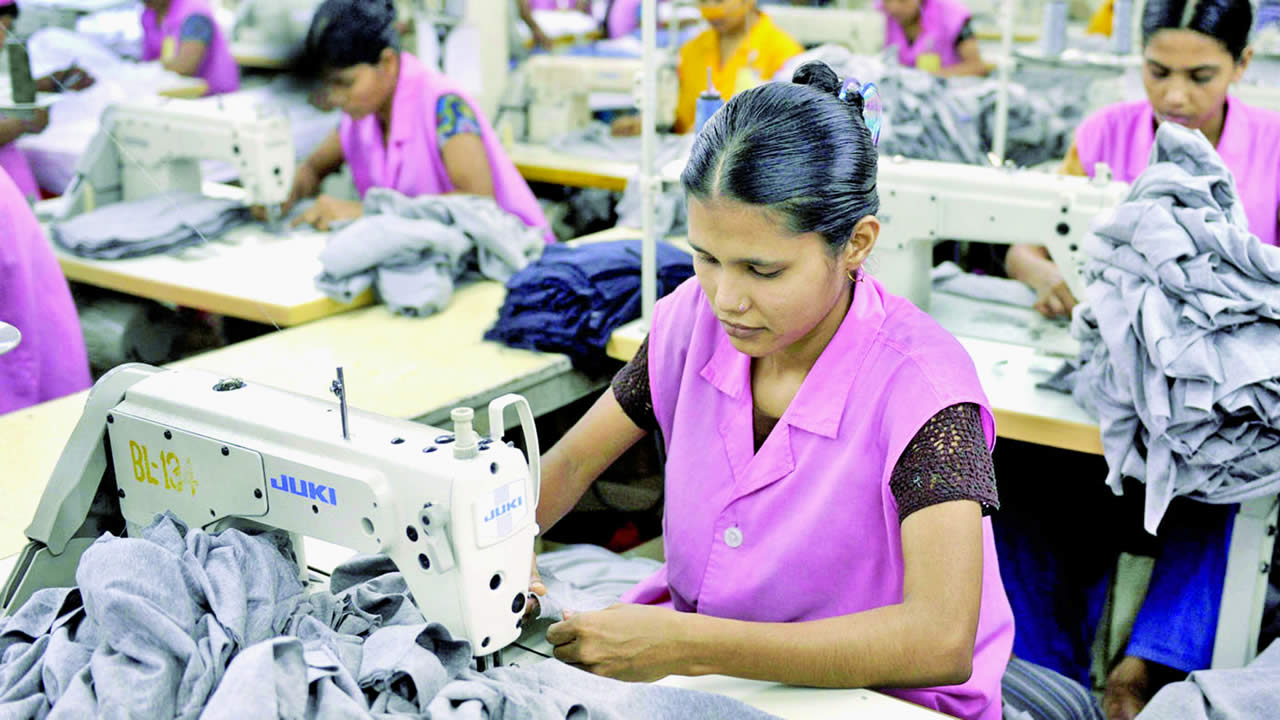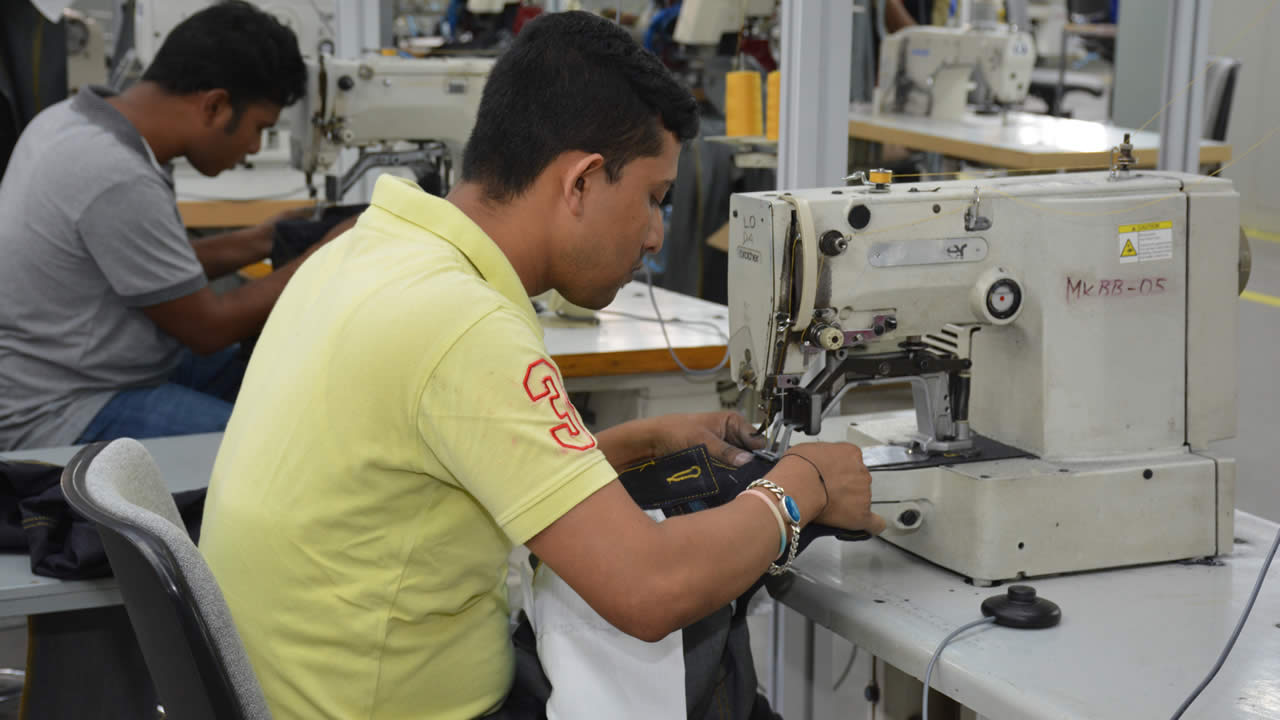

The Government has agreed to the review of policies for the grant of work permits, in line with the measures announced in the 2017/2018 Budget Speech. The objective is to facilitate the employment of foreign labour in needy economic sectors, namely regarding the extension of 8-year work permit policy, to some other sectors, and the issue of work permit within 15 working days. It is also proposed to review the current ratio policy for the issue of work permits in some sectors and introduce work permit smart cards to replace current work permits.
Labour shortage has always given rise to debates among stakeholders. Although the country has, according to official figures, about 40,000 unemployed persons, there are almost as many foreign workers in Mauritius. For employers, there is a serious mismatch between the skills required and those available on the market. In some sectors, such as agriculture, there is an ageing workforce and no labour renewal by young people is taking place. Other sectors such as textiles and construction no longer attract youngsters. All these factors are forcing companies to recruit abroad. But the procedures are not always easy.
This is why, in a bid to improve the business climate, the Government has decided to review the policy of recruiting foreign workers to relieve companies in sectors facing difficulties. Labour Minister Soodesh Callichurn recognises that there are no other alternatives to tackle the acute labour shortage in some sectors, such as textiles, jewellery and bakery, but to recruit from abroad. Thus, the existing ratio of two Mauritians for a foreigner will now be three foreigners for a Mauritian national.

Salil Roy, chairman of the Planters’ Reform Association, welcomes the Government’s decision to allow foreign workers in other sectors in need.
He however wishes that the agricultural sector is considered as well, since this sector has been facing shortage of labour for quite a long time. “The agricultural sector is suffering from an ageing workforce. This is one of the reasons, apart from the decline in sugar revenues, which discourages small farmers and pushes them to abandon their land,” explains Salil Roy.
He regrets that job contractors providing local labour are not always reliable, thus affecting planters. He believes that, if the manufacturing, tourism and ICT sectors can rely on foreign workers for their growth, then why not agriculture? However, he fears that, despite the good intentions of the Government, planters will not be able to avail of these benefits because of the procedures and costs involved.
“A small planter cannot afford the costs related to foreign recruitment because there are permit fees and accommodation costs,” he says. So what is the solution? Salil Roy advocates that cooperative societies, for example, should be allowed to recruit foreign workers and then in turn supply labour to small farmers who need them.

Rajdeo Kissoonah, chairman of the Mauritius Cooperative Alliance, also welcomes the Government’s decision because he agrees there is a real lack of manpower, which affects agricultural production. The man who is in charge of a hundred co-operative societies says he is aware of the problems faced by small entrepreneurs. “If we want small businesses to grow, then we need to make it easier for them to hire foreign workers to overcome the lack of local skills.” He concludes that this measure can largely relieve small entrepreneurs and planters.
Economist Eric Ng finds that the use of foreign workers has become a necessity, as many sectors need a skilled and abundant workforce to progress. “If entrepreneurs cannot find the skills they need locally, then it is necessary to facilitate the import of foreign workers.”
Gérard Uckoor, chairman of the Association of Small Contractors, complains that the authorities have failed to value local workforce, which has led us to the dire situation today.
He believes that foreign workers come to Mauritius to make money and they will leave afterwards, without necessarily giving the best of themselves, while local workers would make a career. “It’s a pity that we do not encourage young people to work in certain sectors, we do not train them, we do not empower them, and then we complain of lack of skilled manpower,” says Gérard Uckoor. He says he does not fully agree with the new recruitment policy.

He believes that local workers are not interested in certain sectors because there is no prospect for the future. “Once the buildings are completed, there are no more jobs. On the other hand, if we replace buildings, say every 25 or 30 years, there would always be new job opportunities.”

Figures
Employment of Mauritian nationals is estimated at 541,500 as at 30 June 2018, compared to 549,400 as at 30 June 2017. The unemployment rate for the second quarter of 2018 is estimated at 7.0%, lower than the rates of 7.2% at the second quarter 2017 and 7.1% at the first quarter of 2018. The 40,500 unemployed comprised 18,500 males (46%) and 22,000 females (54%). 21,500 or about 53% of the unemployed were aged below 25 years. Around 28,200 (70%) of the unemployed were single.
Among males, the majority (85%) was single compared to 56% among the females. Some 2,400 or 6% had not reached the Certificate of Primary Education (CPE) level or equivalent and a further 11,800 (29%) did not have the Cambridge School Certificate (SC) or equivalent. Statistics Mauritius forecasts that employment is expected to increase by 3,500 in 2018 to reach 548,600 compared to 545,100 in 2017. Unemployment rate for 2018 is forecasted at 6.9%, lower than the rate of 7.1 % for 2017.

Michael Valère : “We cannot rely on seasonal workers”

Michael Valère, a cow breeder at the Cow Breeders Cooperative Society at Nouvelle Découverte, says he welcomes the government’s decision to streamline the hiring of foreign workers for troubled economic sectors. He says it is very difficult to find skilled labour for the livestock sector, and local workers do not like to stay in this sector for long.
“Because of acute labour shortage, it is difficult to implement long-term projects, because if my workers suddenly leave, I will make huge losses, especially losing animals if there is no one to care for them,” says Michael Valère, who is convinced that the dairy sector has a bright future in Mauritius, but the main obstacle is the unavailability of labour.
He says if breeders are allowed to recruit foreign workers for a long term contract, at least they can better plan their investment and improve their productivity. “Such a vital sector cannot be at the mercy of seasonal workers, who work for a few days and then leave. It’s time to have long-term contract workers who will be fully dedicated and committed,” says the farmer.
Faisal Ally Beegun:“We should not hasten the approval of a permit”
 Trade unionist Faisal Ally Beegun wonders how the authorities will be able to approve a work permit in less than a fortnight when we know that there are a lot of checks to be done beforehand, such as inspecting the dormitories to make sure they are up to standards. “We are aware of dormitories that do not really comply with all regulations. We will have to make sure that everything is in order before approving a permit,” said the unionist. But can we do it in two weeks? Secondly, he says he is worried about the intended use of the ‘smart card’ that the authorities want to introduce. “If the goal is to identify potential victims or illegal workers, I agree, but if you want to use smart cards to monitor workers, then I will denounce this practice,” says Faisal Ally Beegun, recalling that every worker is free to move around and that he should not be watched.
Trade unionist Faisal Ally Beegun wonders how the authorities will be able to approve a work permit in less than a fortnight when we know that there are a lot of checks to be done beforehand, such as inspecting the dormitories to make sure they are up to standards. “We are aware of dormitories that do not really comply with all regulations. We will have to make sure that everything is in order before approving a permit,” said the unionist. But can we do it in two weeks? Secondly, he says he is worried about the intended use of the ‘smart card’ that the authorities want to introduce. “If the goal is to identify potential victims or illegal workers, I agree, but if you want to use smart cards to monitor workers, then I will denounce this practice,” says Faisal Ally Beegun, recalling that every worker is free to move around and that he should not be watched.
Foreign workers, he adds, contribute a lot to the economy and they deserve our respect. When they become illegal workers, you have to know the reason. “You have to understand that workers are afraid to return empty-handed to their country because they have debts to pay, so they try to maximise their income. Employers who do not respect the contract must be dealt with, as this is why workers escape. He asks who will finance the ‘Smart Card’ and if the workers will have to pay in case of loss of this card. He also says he does not agree with the opening up of more economic sectors to foreign workers, without measuring the real extent of labour shortage.
 J'aime
J'aime













